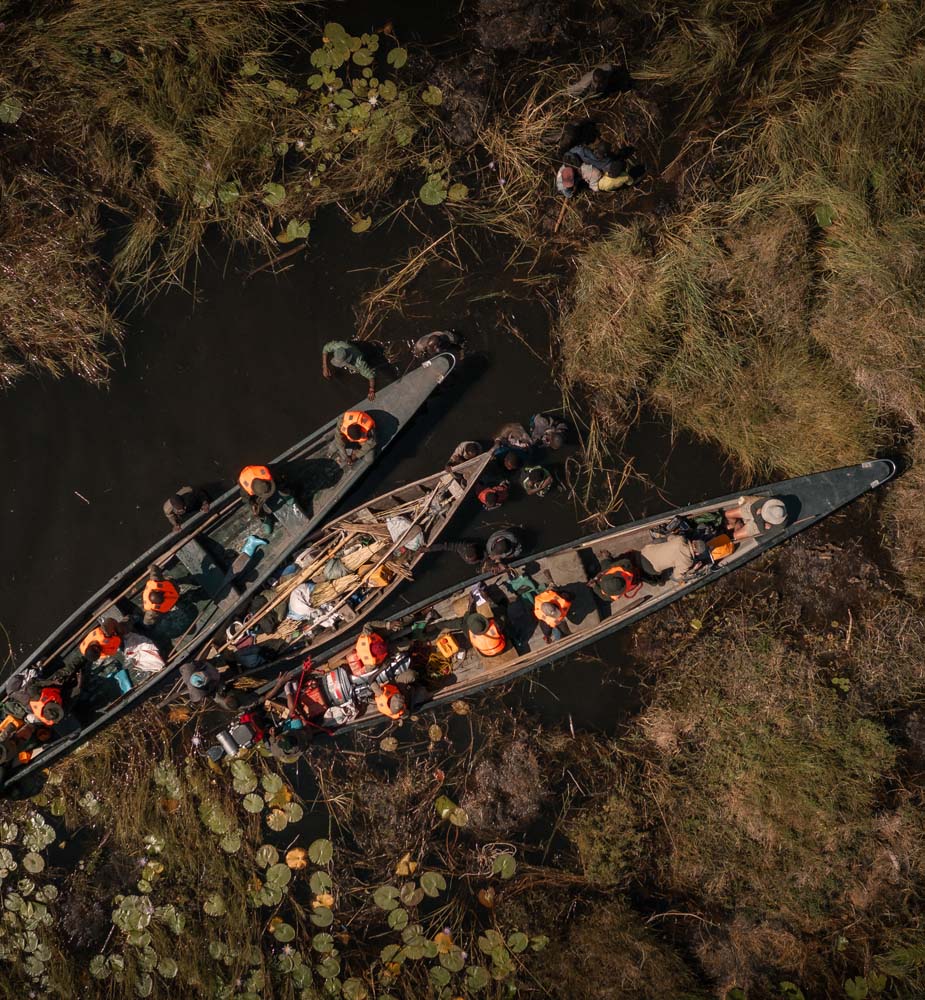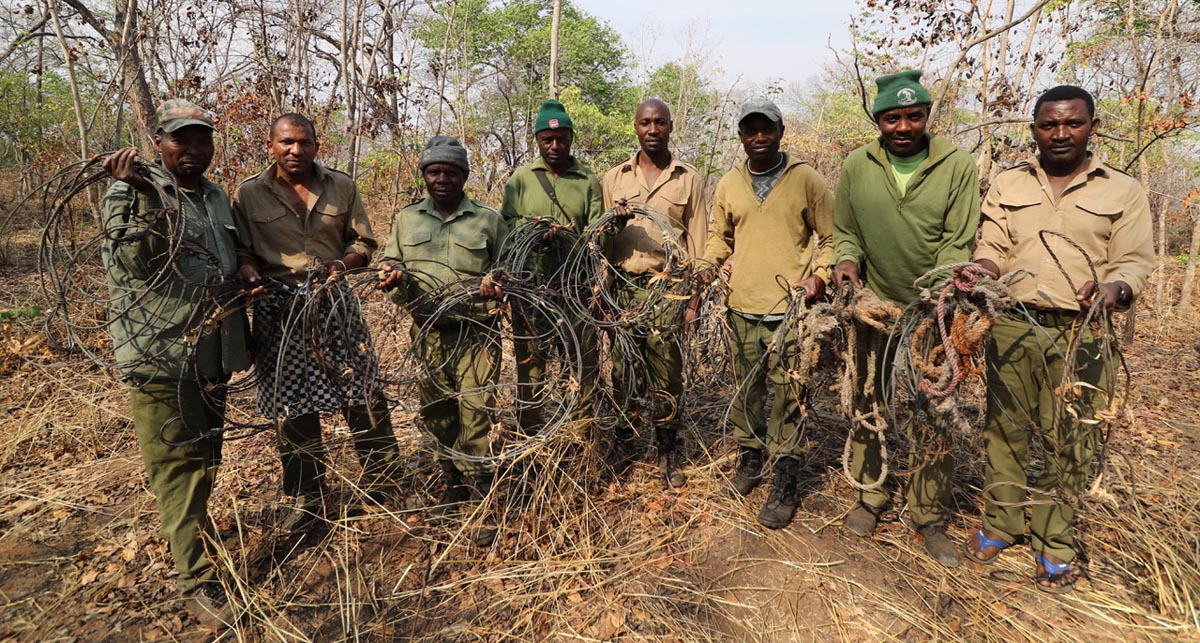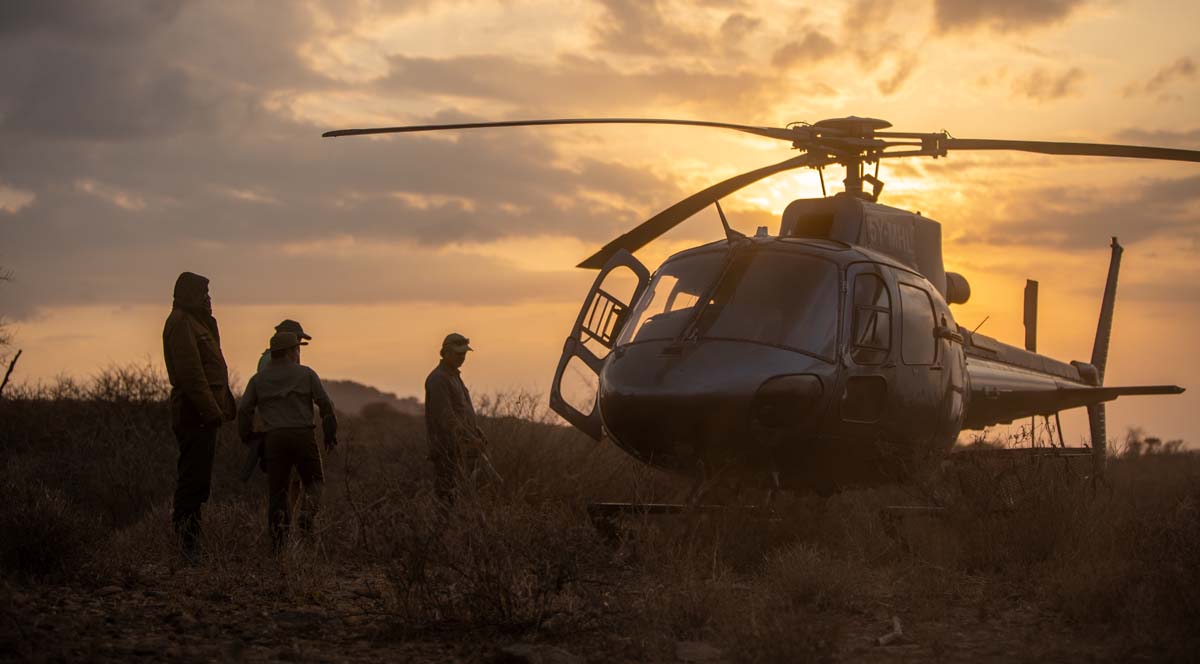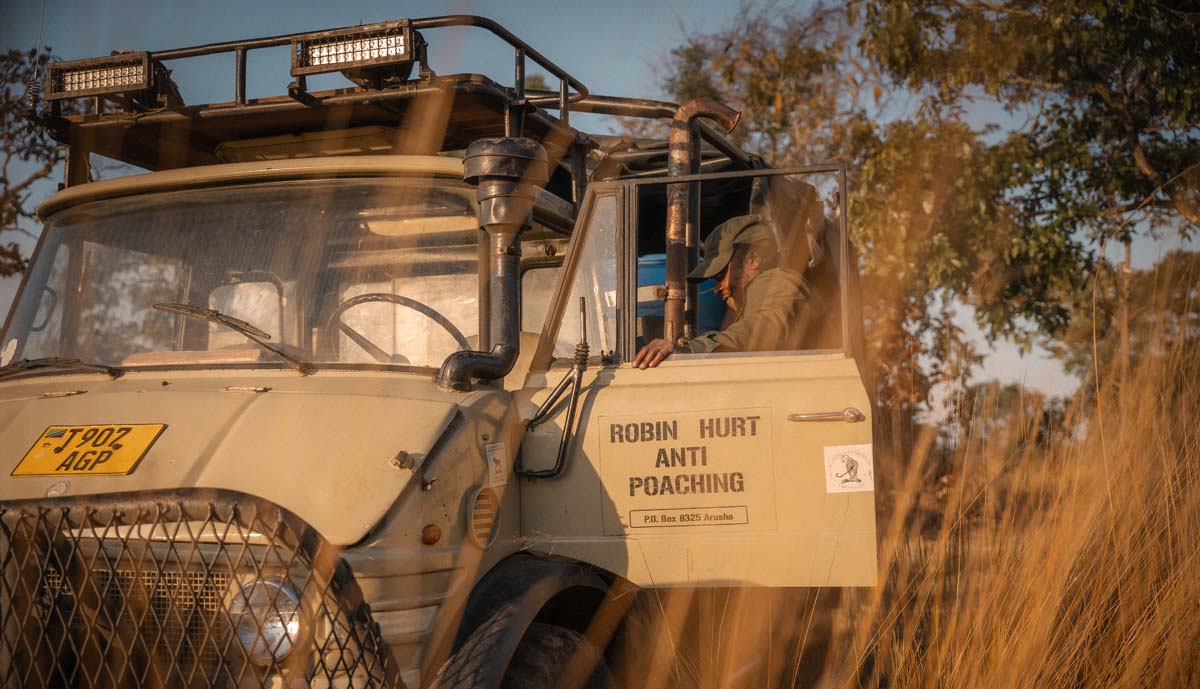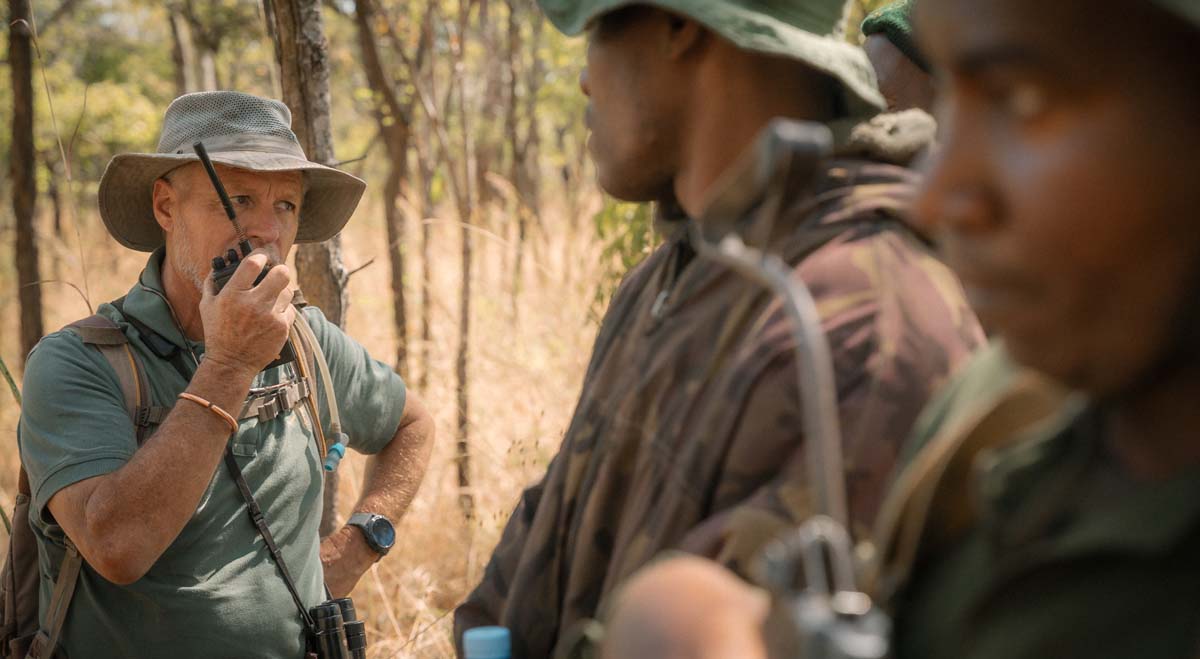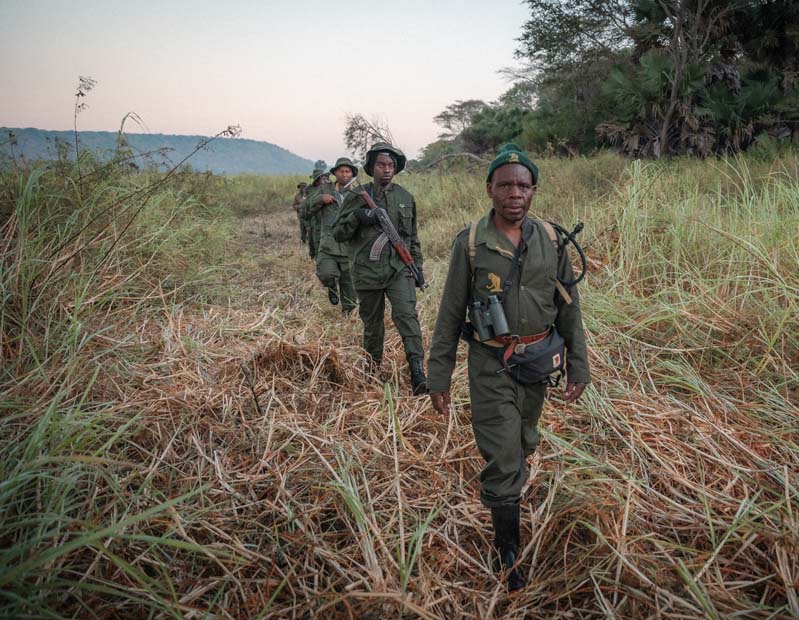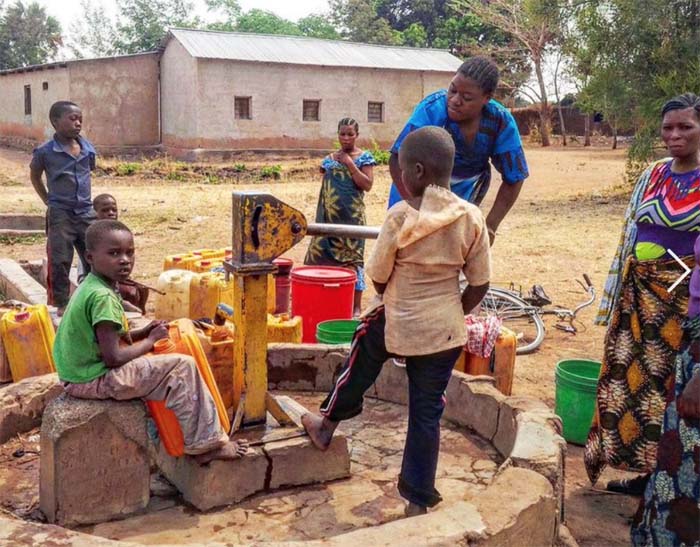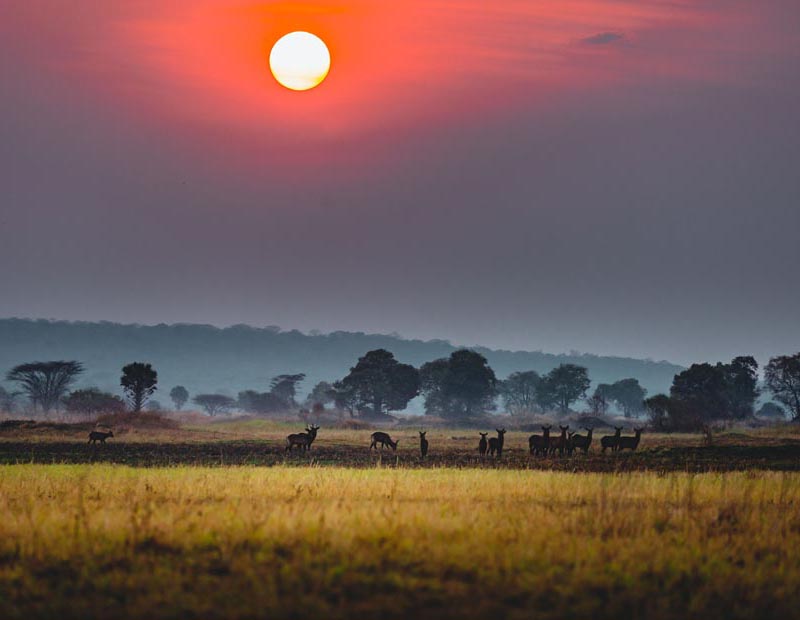Our anti-poaching teams continue to work tirelessly and are constantly striving to find new and better techniques to patrol incredibly large areas.
Conservation and
Anti-Poaching Patrols
Conservation and anti-poaching are one of the primary areas of focus of the Robin Hurt Wildlife Foundation. Poaching has been on the increase across the whole of East Africa over the past 15 years. Primarily this increase has been largely focused on ivory poaching and we are sad to report dramatic decreases in the elephant population across the areas we work in. This has largely been due to the increase in demand and price of ivory on the black market.
The illegal bush meat trade continues to also be a major form of poaching. This is largely due to the ever increasing human populations across East Africa combined with the dramatic poverty and unemployment levels in these rural areas. Other problems facing these huge wilderness areas are illegal timber logging and encroachment of cattle herders from the surrounding areas.
Our anti-poaching teams continue to work tirelessly and are constantly striving to find new and better techniques to patrol such large areas (ranging from half to over 2 million acres in size). We have recently been donated two drones which we hope will help survey greater expanses in a shorter period of time.
Our Anti-Poaching patrols
Flexible, persistent patrols conducted regardless of season, weather, or terrain are essential to the success of the RHWF anti-poaching program. Our anti-poaching teams operate day and night, on land, water, and flooded ground during the rains. We utilize multiple 4WD vehicles, trucks, boats, and amphibious vehicles to ensure that no parts of our wilderness areas provide sanctuary for illegal activities. The effectiveness of our Anti-Poaching Unit is evident through the precipitous drop in the number of snare lines, illegal weapons and poacher’s camps discovered in our concessions.
Litres of diesel required per month to patrol our conservation areas
Helicopter Support
Nothing beats eyes in the sky! Helicopter patrols conducted by our talented pilots are essential to detecting potential illegal incursions into the areas we manage. Encroachment from illegal grazing, fishing, logging, poaching, and mining are best detected from the air and an airborne platform is perfectly suited to monitoring densely vegetated areas and areas difficult to access by vehicle or on foot. The sheer vastness of our concessions makes helicopter supported patrols highly desirable and effective and the presence of a helicopter provides a massive deterrent to illegal activity.
Acres is the size of our largest conservation area which needs to be partolled by drones and helicopters
Man Hours
Our Anti-Poaching Unit spends over 271 hours patrolling our remote concessions per month. The enormous commitment to time spent in the field has yielded tangible results in deterring and interdicting illegal activity within our areas of operation. Equally importantly, our APU is a vital source of year-round employment for people residing in the surrounding communities and ensures that local families have a very real stake in our conservation mission.
Number of hours spent patrolling per month by our anti-poaching teams
Conservation and Anti-Poaching
Conservation and anti-poaching are one of the primary areas of focus of the Robin Hurt Wildlife Foundation. Poaching has very sadly been on the increase across the whole of East Africa over the past 15 years.
Community Development
Through our Village Benefits Scheme and other generous donations we have been working on community upliftment projects with all the villages adjacent to our Hunting Concessions across Tanzania.
Our Conservation Projects
Conservation and anti-poaching are one of the primary areas of focus of the Robin Hurt Wildlife Foundation. Poaching has very sadly been on the increase across the whole of East Africa over the past 15 years.
